We have much more to do and your continued support is needed now more than ever.
New Climate Education Bill for New York
NY state climate education bill addresses causes and impacts of climate change and its solutions. High school students helped to write it.
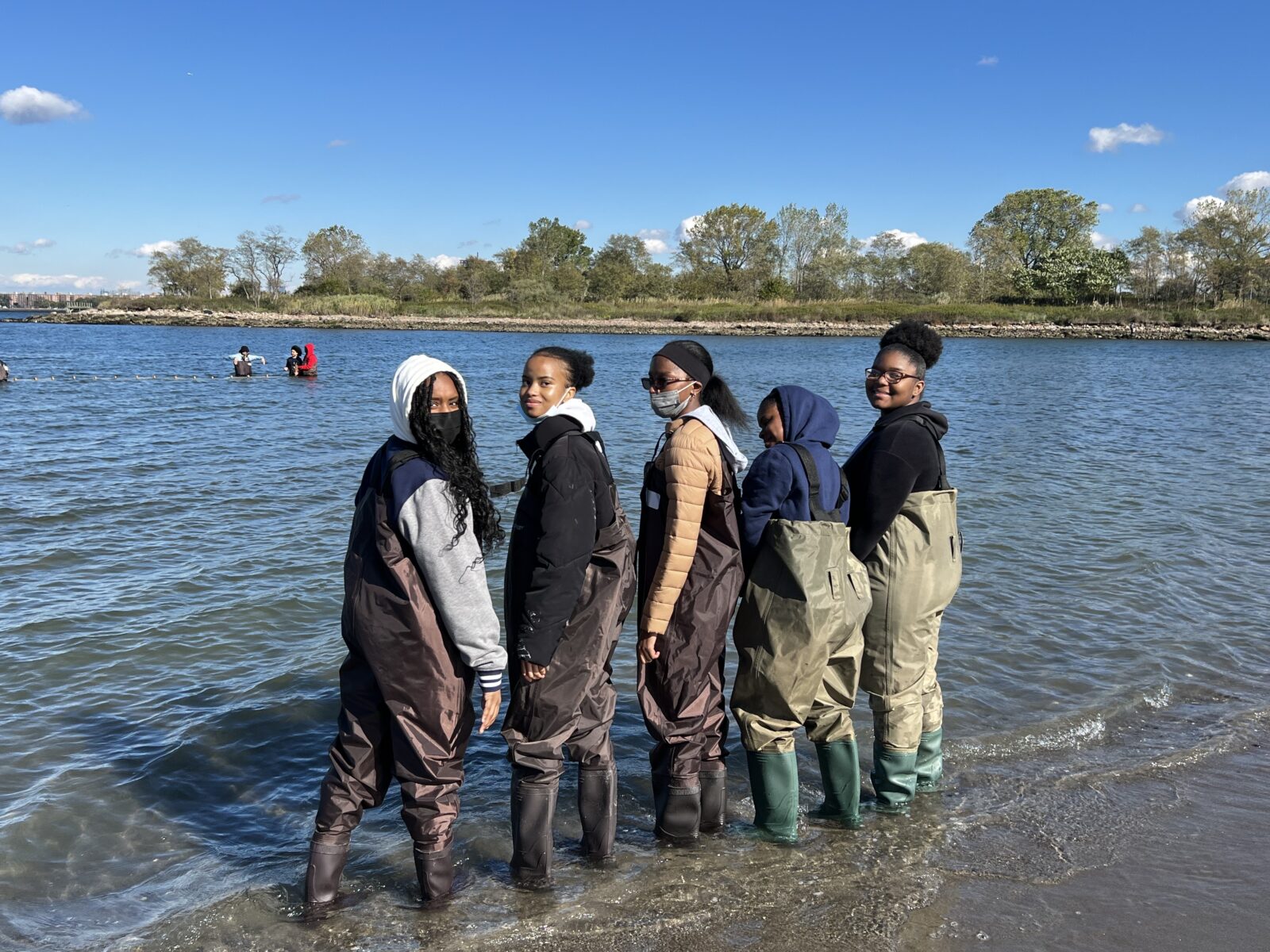
In November 2023, scientists in Europe reported that Earth’s global average temperature was briefly two degrees Celsius hotter than pre-industrial levels. NOAA and NASA— U.S. federal agencies—both confirmed that 2023 is virtually certain to be Earth’s hottest year on record since global records began in 1880.
New York is the fourth most populous state in the U.S. and has the largest school district in the country. The climate crisis represents a significant threat to the state’s 19.5 million inhabitants, including its more than 2.5 million K-12 public school students. In the coming decades, more frequent extreme weather events, rising temperatures and extreme heat, changing precipitation, sea level rise, and the loss of land, homes, businesses, and lives will impact New York.

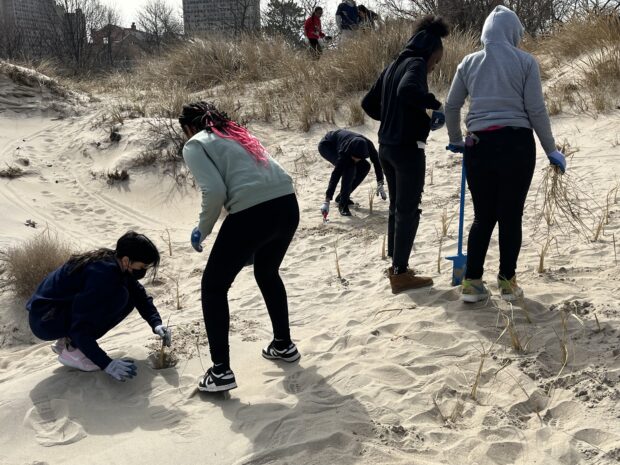
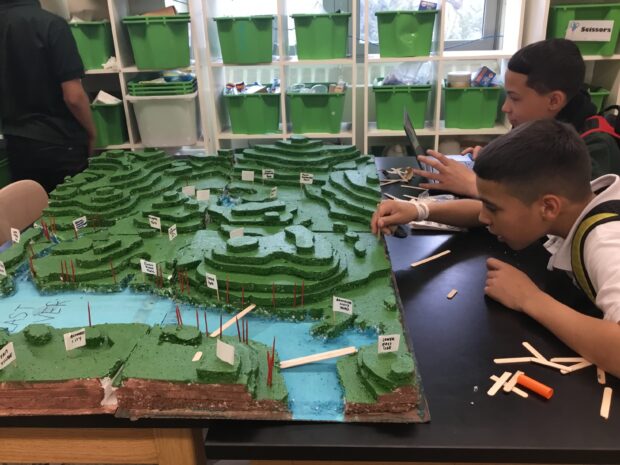
Anxious about the future
Young people are already experiencing climate extremes and life disruptions first hand. This past June, New Yorkers experienced dystopian orange skies and smoke from Canadian wildfires. On September 29, 2023, a record-setting rain event dumped 7.25 inches of rain in New York City’s residential neighborhoods in just a few hours, shutting down mass transit, flooding 150 public schools, stranding hundreds of thousands of students and their families, and leading New York City’s Mayor to declare a state of emergency. A majority of young people are understandably feeling scared and anxious, and believe that adults and governments have failed them by not taking action to stop the climate crisis.
Despite this, New York City students barely learn about the causes of climate change in school, including its far-reaching systemic impacts, or potential solutions. According to a 2021 survey of 1,516 NYC public school teachers conducted by the Climate and Resilience Education Task Force in partnership with the United Federation of Teachers, 52% of educators said they teach about climate change but the majority only do so for one to two hours per school year; and 68% said they don’t have time to teach about it. This lack of climate education sadly mirrors the national average.
Climate education is imperative
In order for New York to achieve its ambitions for 100% zero-emission electricity by 2040, as outlined in the Climate Leadership and Community Protection Act (CLCPA)—now state law—robust K-12 climate education curricula, professional learning opportunities for teachers, and green Career and Technical Education (CTE) programs are required. Research by Yale shows that a majority of New Yorkers support students learning about global warming in school.
States like New Jersey, which has implemented a climate education mandate across all grades and content areas, and Washington, whose Climetime program has made climate science a priority since 2018, are demonstrating the educational leadership that it takes to bolster the climate preparedness and economic competitiveness of current and future generations of young people.
Increasing access to climate education in New York is also a matter of both generational and racial justice. The climate crisis, caused by previous generations, will have detrimental impacts on future generations. According to data from the Department of Environmental Conservation (DEC), New York State has a large number of Potential Environmental Justice Areas (PEJA) and New York City has the highest concentration in the state. These communities will experience the first and worst climate impacts. New York has an obligation to ensure that its youngest and most vulnerable citizens gain the critical knowledge and skills they need to advocate for change and transform their communities.
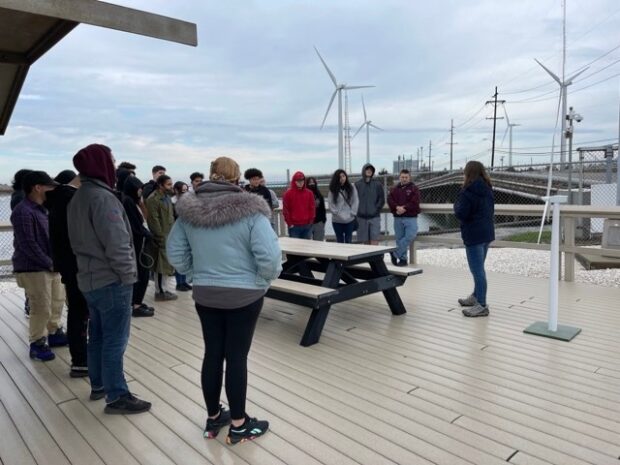

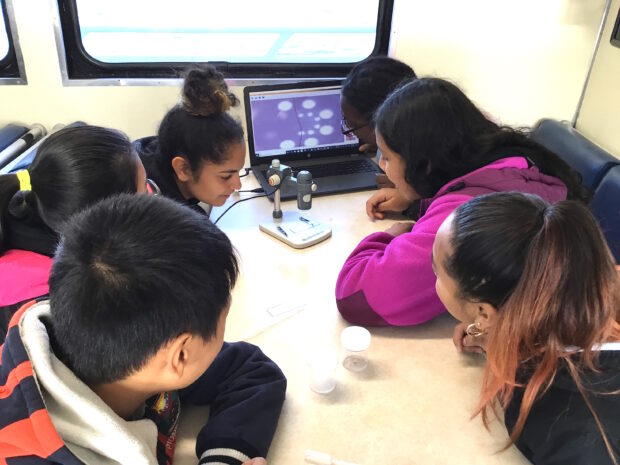
The New York climate education bill
The Climate and Resilience Education Task Force (CRETF), co-managed by the National Wildlife Federation and WE ACT for Environmental Justice, is an intergenerational coalition of educators, students, NGO staff, and community members working to expand access to interdisciplinary climate education in New York State. After an in-depth analysis of legislation in New York as well as cataloging the elements of successful climate education programs in other states, the Task Force’s intergenerational policy committee drafted a comprehensive climate education bill adapted from a prior bill (S.278) sponsored by Brooklyn Senator Andrew Gounardes.
S.278A, introduced by Senator Gounardes in late November, is aligned to CRETF’s New York State Climate Education Platform and “establishes a course of instruction and learning expectations on climate education in all public pre-kindergarten, elementary and secondary schools.” It enables educators to explore the causes and impacts of climate change as well as its solutions; provides professional learning opportunities, curricular resources, and ongoing support for teachers; develops green Career and Technical Education (CTE) programs, and assessment instruments related to climate education; establishes expectations for pre-service teacher certification programs; and establishes a coordinating Office of Climate Education and Workforce Development.
New York’s youngest citizens deserve a comprehensive education that equips them with the understanding and skills needed to navigate the complex challenges of our time. S.278A will deliver.
To learn more about CRETF, to get involved or support our work, please visit our website.






















